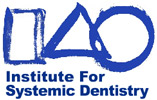Cavities are one of the most common dental problems, but the good news is they are highly preventable. By making a few simple changes to your daily routine and being mindful of your dental habits, you can keep your teeth healthy and cavity-free. In this article, we’ll cover practical tips that you can easily incorporate into your life to prevent cavities. We’ll start with the basics of proper brushing and flossing techniques, then move on to the benefits of using mouthwash, and how to make smart dietary choices. We’ll also discuss the importance of regular dental check-ups and some additional strategies like chewing sugar-free gum and using dental sealants. By the end of this article, you’ll have a comprehensive understanding of how to protect your teeth from cavities and maintain a bright, healthy smile. Let’s get started!
Brush Regularly and Properly
Brushing your teeth at least twice a day is essential for removing plaque, the sticky film of bacteria that forms on your teeth and can lead to cavities. Use a fluoride toothpaste and a soft-bristled toothbrush, and brush for at least two minutes. Make sure to clean all surfaces of your teeth, including the fronts, backs, and chewing surfaces. Don’t forget to brush your tongue, as it can harbor bacteria as well.
Floss Daily
Flossing is crucial for removing plaque and food particles from between your teeth and under the gumline, areas that your toothbrush can’t reach. Floss at least once a day to keep these areas clean and prevent cavities from forming.
Use Mouthwash
Using an antibacterial mouthwash can help reduce the number of bacteria in your mouth, which helps prevent plaque formation and cavities. Choose a mouthwash that contains fluoride for extra protection.
Limit Sugary and Acidic Foods and Drinks
Sugary and acidic foods and drinks are a major cause of cavities. Bacteria in your mouth feed on sugar and produce acids that can erode your tooth enamel. Try to limit your intake of sugary snacks, soda, and fruit juices. When you do consume these items, brush your teeth or rinse your mouth with water afterward.
Drink Plenty of Water
Drinking water helps wash away food particles and bacteria from your mouth, reducing the risk of cavities. Water also helps maintain a healthy flow of saliva, which is your mouth’s natural defense against plaque and tooth decay.
Eat a Balanced Diet
Eating a diet rich in fruits, vegetables, lean proteins, and whole grains can help keep your teeth healthy. Foods high in calcium and phosphorus, such as dairy products, nuts, and leafy greens, help strengthen your tooth enamel.
Chew Sugar-Free Gum
Chewing sugar-free gum after meals can help increase saliva production, which helps wash away food particles and neutralize acids in your mouth. Look for gum that contains xylitol, a natural sweetener that has been shown to reduce the risk of cavities.
Visit Your Dentist Regularly
Regular dental check-ups and cleanings are essential for preventing cavities. Your dentist can detect early signs of decay and provide treatments to stop it from progressing. Professional cleanings remove plaque and tartar buildup that you can’t remove at home.
Use Dental Sealants
Dental sealants are a protective coating that your dentist can apply to the chewing surfaces of your back teeth. Sealants fill in the grooves and pits where food particles and bacteria can get trapped, providing an extra layer of protection against cavities.
Avoid Frequent Snacking
Frequent snacking can increase the amount of time your teeth are exposed to sugar and acids, increasing the risk of cavities. Try to limit snacking between meals and choose healthier options like fruits and vegetables when you do snack.
Preventing cavities requires a combination of good oral hygiene practices, a healthy diet, and regular dental visits. By following these top tips, you can keep your teeth strong and healthy and avoid the pain and expense of cavities. Remember, the key to a cavity-free smile is consistency and care.








